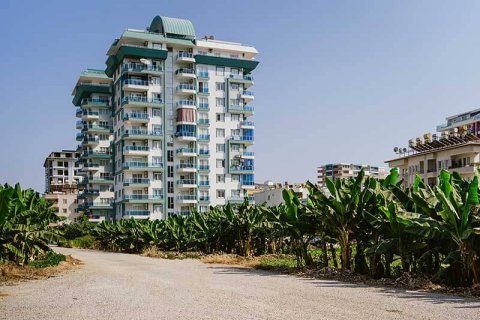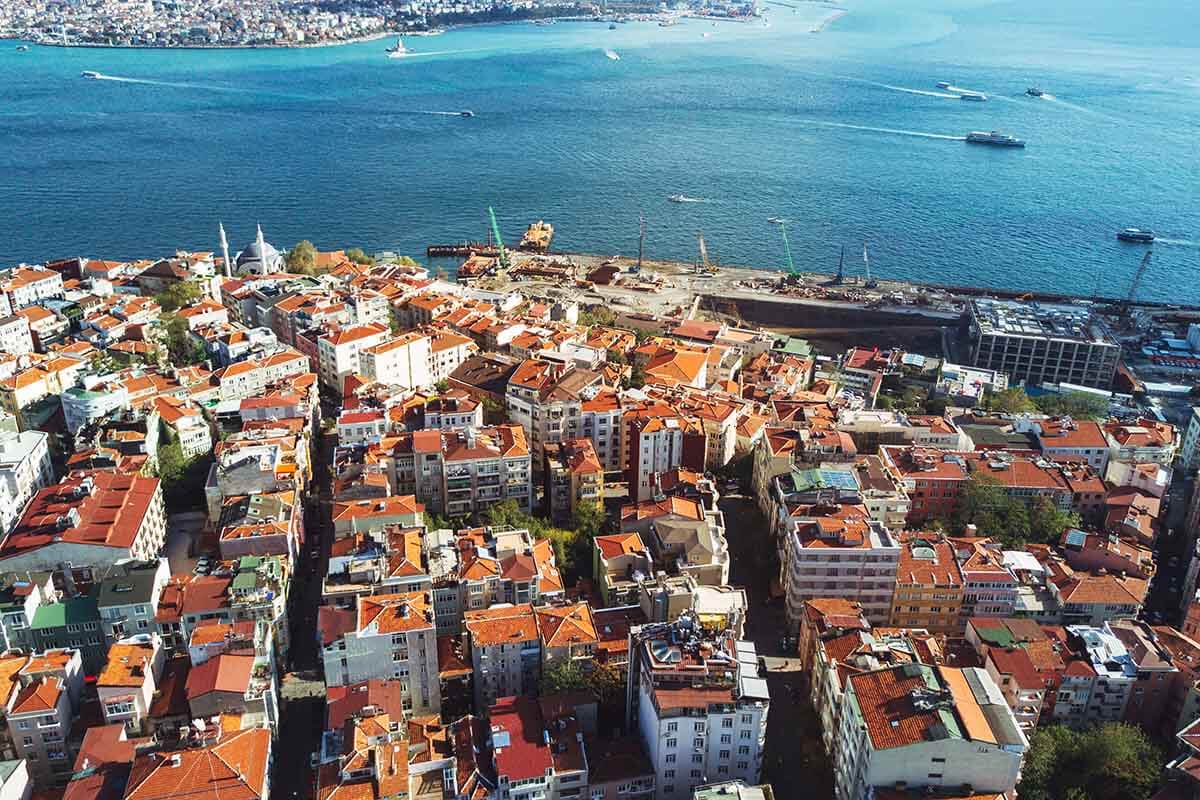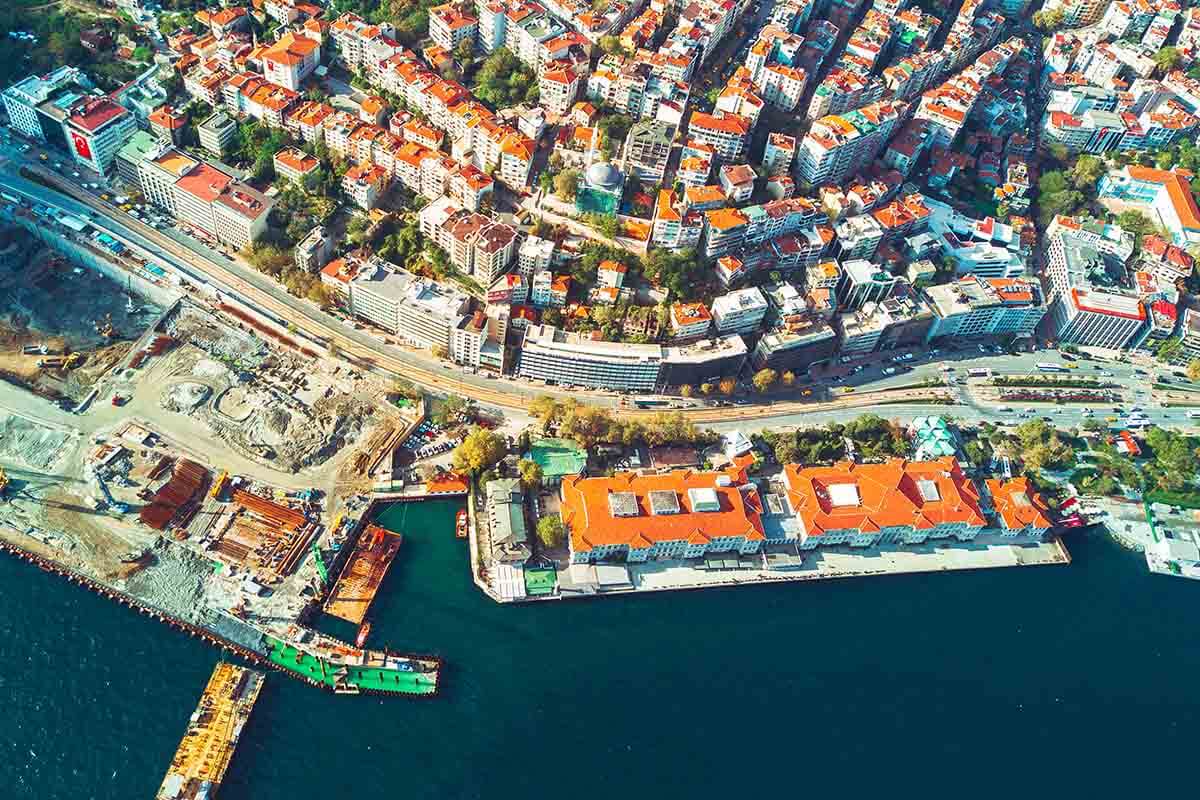
Despite the economical, political, and post-pandemic difficulties (maybe even partially because of them), the first six months of 2022 turned out to be very productive for the Turkish development sector.
Increasing the purchase amount to $400,000, if you wish to obtain citizenship under the accelerated procedure has by no means tamed the passion of investors. Although for a short period (in a matter of weeks or days) after the implementation of this regulation, the number of transactions decreased slightly, the “average purchase check” began to grow.
Additionally, sales went up substantially from mid-July to mid-August. In general, June became one of the most successful months in history in terms of the volume of transactions with residents of other countries.
Furthermore, there’s reason to believe that the second half of the year will be equally productive.
The Turk.Estate website has put together the most up-to-date statistics and the latest news in this field to guide current trends.
Content:
- Istanbul is still at the peak of popularity
- The Russians are the leaders
- Sales leaders
- “Advantages” versus “Housing Crisis”
- $3.5 billion for six months and $1.15 billion in a month
Istanbul is still at the peak of popularity
In particular, according to Soner Keles, the founder of Sales Solutions and a member of the board of directors of Motto Turkey, foreigners buy every second residence in new buildings that are currently on sale in the metropolis.
Turkish developers rapidly got their bearings and adjusted accordingly. Top priority is now given to the interests and priorities of foreign buyers in their projects. This applies to locations, floor plans, the potential for redevelopment, the ability to combine homes, etc. Additionally, developers keep an eye on which districts of Istanbul are particularly in demand and start the construction of new residential complexes there, including intensively buying up land plots.
Soner Keles confirmed that, despite the worldwide economic downturn in January-June 2022, this period was marked as one of the most successful in terms of the transaction volume of foreigners in Turkey.
Over six months, foreign investors bought over 35,000 different types of housing, including apartments and homes (the exact figure is 35,383). This is an increase of 72.7% from the same period (January-June) last year.
The number of transactions almost doubled in June, increasing by 81.8% from June 2021. This totals 8,630 transactions a month, the highest recorded rate in monthly residential real estate sales statistics. For clarity, the previous high peak in December 20217, was 841 transactions.

The Russians are the leaders
Since 2013, when it became legal to sell houses to foreigners (all the necessary procedures were approved ), Iran and Iraq have become key buying nations. However, since the beginning of the Russian-Ukrainian conflict, the Russian Federation has taken first place for the first time, surpassing Iran and Iraq. For the last three months, April, May, and June, the Russians have been steadily holding the leading position. This situation is expected to continue for at least a few more months. But let’s not guess. Just the other day analysts published the July sales statistics.
A well-known fact is that, based on the statistics of the first six months and accounting for the significant “spurt” in the second quarter of 2022, Russian Federation citizens made the majority of home purchases in Turkey. To get back to the figures, this means that 5,849 residential units were sold during six months, 232.5% higher than the first six months of the previous year. As a result, more purchases were made in only six months than for the entire year of 2021.
Iran had 4,884 transactions, meaning this country “falls behind” by approx. 1,000 transactions. Iraq is ranked third in the TOP-10 with 4,025 purchases. The "hot ten" of the half-year includes Kazakhstan, Germany, Afghanistan, Ukraine, Yemen, China, and Palestine.
Let us also clarify that Ukrainian people are “just picking up steam”. In the first six months of 2022, Ukrainian citizens purchased 1,186 apartments or houses in Turkey.
As for the summer, in June alone, the Russians signed 1,887 sales contracts. The second and third countries in terms of contract volume over the past month are Iran (987) and Iraq (807).
Sales leaders
As we've already mentioned, the percentage of transactions involving foreigners for a month (the same June) “passed” the 5% threshold, a landmark in this industry for the first time, and even reached as high as 5.7% of all transactions. Although this figure is “smeared” over the country, Istanbul accounts for nearly half of all sales to citizens of other states- 45%, or 14,895 residential properties sold over the last six months.
Another leader is Antalya, in second place with 9,836 sales at present.
The Chairman of the Board in Helmann Dr. Selman Ozgun confirmed that Antalya and Istanbul continue to be “popular” places for foreign investors. From January to June, Antalya's transaction number “grew” immediately by 146.5%. Mr. Ozgun is sure, though, that housing sales will continue to be sold at a rapid pace in important cities and also in the less popular ones.
Returning to the top places, Mersin and Ankara, the country’s capital (1,762 transactions in six months), basically share third place, according to the results of the first half of the year (1,655 transactions).
In June, developers and real estate agents sold 3,906 housing units to foreign investors in Istanbul - 2,534 in Antalya and 428 in Mersin.
Foreigners are also interested in the provinces of Bursa, Yalova, Sakarya, Izmir, Samsun, and Kocael. Impressive sales volumes were also recorded here from January-June.
However, the willingness of overseas investors to purchase property in Turkey, without having to think about prices, provokes a much faster price growth. Moreover, developers attempt to compensate for the rising construction costs and inflation, which remains unpredictable.
“Advantages” versus “Housing Crisis”
2021 was a very successful year. Direct injections into the country's economy through the purchase of residential real estate by foreign investors totaled $10 billion. A total of 58,576 residences were sold in a year.
We would like to stress that the figure has already exceeded 70% for the first half of 2022. Nazmi Durbakayim, Chairman of the Board of the Istanbul Association of Builders (INDER), told the Anadolu news agency that the ongoing crisis between Russia and Ukraine was the catalyst for the record "high" in home sales to foreign nationals. Both of these countries have increased their real estate purchases. In addition, Iran and Iraq still actively buy homes.
Tamer Ozyurt, Chairman of the Board at Özyurtlar Holding also pointed out that after the announcement of the increase in the “citizenship threshold”, numerous people began to snap up apartments and houses. In particular, to protect your savings from fluctuations in the exchange rate (Editor's note: to obtain Turkish citizenship under the fast-tracked procedure when acquiring a home, an independent real estate appraisal and certain actions in connection with fixing the exchange rate are required). This is reflected almost immediately in the final results, he says.
Russians and Ukrainians made up 25% of all sales to international customers in May, which was close to the "Date H," or June 13, 2022, when the decision to raise the threshold to $400,000 came into force.
Thus, the rise in popularity of Turkish real estate sparked the development of a housing crisis in Turkey, and the record number of transactions involving foreign investors in June did not play a final role in this. At the time, calls were made to limit the ability of foreign investors to purchase residential real estate. The rapid depreciation of the Turkish lira, combined with the already widely accepted practice of granting foreigners “fast-track” citizenship in exchange for the purchase of real estate, was increasing the number of transactions too fast and not helping to keep prices at the same level. This meant that, after accounting for inflation, fewer Turks could afford to buy residences.
But, just as they started talking about it, they stopped. The most persuasive “argument” at present is direct injections into the Turkish economy in dollars, euros, or an equivalent sum on the day of purchase. This may only be temporary.
Also, the authorities are already puzzled by the problems associated with addressing the housing crisis through both the sale and rental of social housing, in addition to the regular actions held in various provinces by the Housing Development Authority. It auctions affordable real estate specifically for low-income families. It was recently reported that a "social lease" project with moderate tariffs, as in Europe, will soon be launched. Recep Tayyip Erdogan also recently unveiled a plan to offer newlyweds cheaper houses in the future.
So, if possible, they will strive to stay away from foreigners who want to purchase real estate in Turkey, at least for the time being.
So they will try, at least for a while, to avoid foreigners wanting to buy housing in Turkey.
Abdussamet Bahadir, CEO of Bahas Holding, emphasized: “The real estate sector in Turkey is the safest investment vehicle. The treasury is receiving a large infusion of foreign currency, which is crucial for reducing the current account deficit. We, therefore, place a high value on real estate targeted at international purchasers. In Turkey, we are waiting for them.”
The key players in the development industry, at least, have high hopes that the rise in transactions will continue, at least through to the end of 2022.

$3.5 billion for six months and $1.15 billion in a month
The Central Bank of the Republic of Turkey revealed that the profit from the sale of real estate to foreigners in June 2022 surpassed another record, hitting $1.144 billion. This is the most recent data, published on August 11, 2022.
Housing sales to citizens of other states brought in $3.485 billion in the first half of 2022. This amount, which was reported in the second half of 2018, is the second-highest in the history of this kind of statistic, the record being $3.651 billion (July-December).








